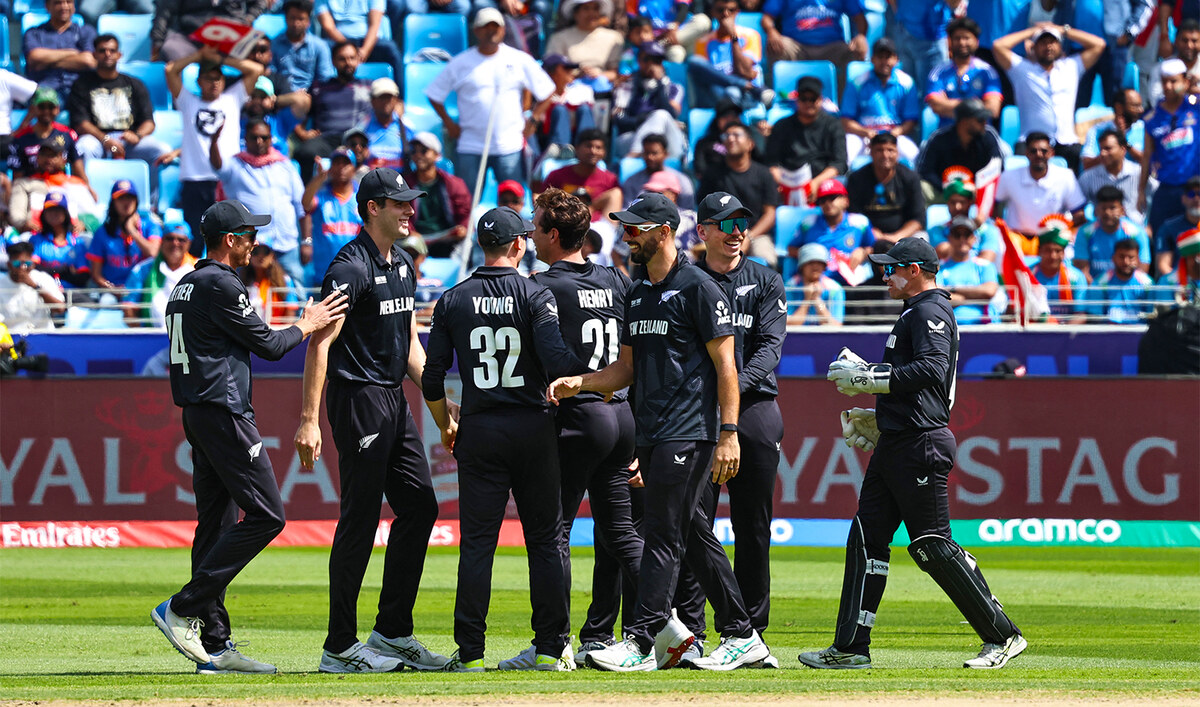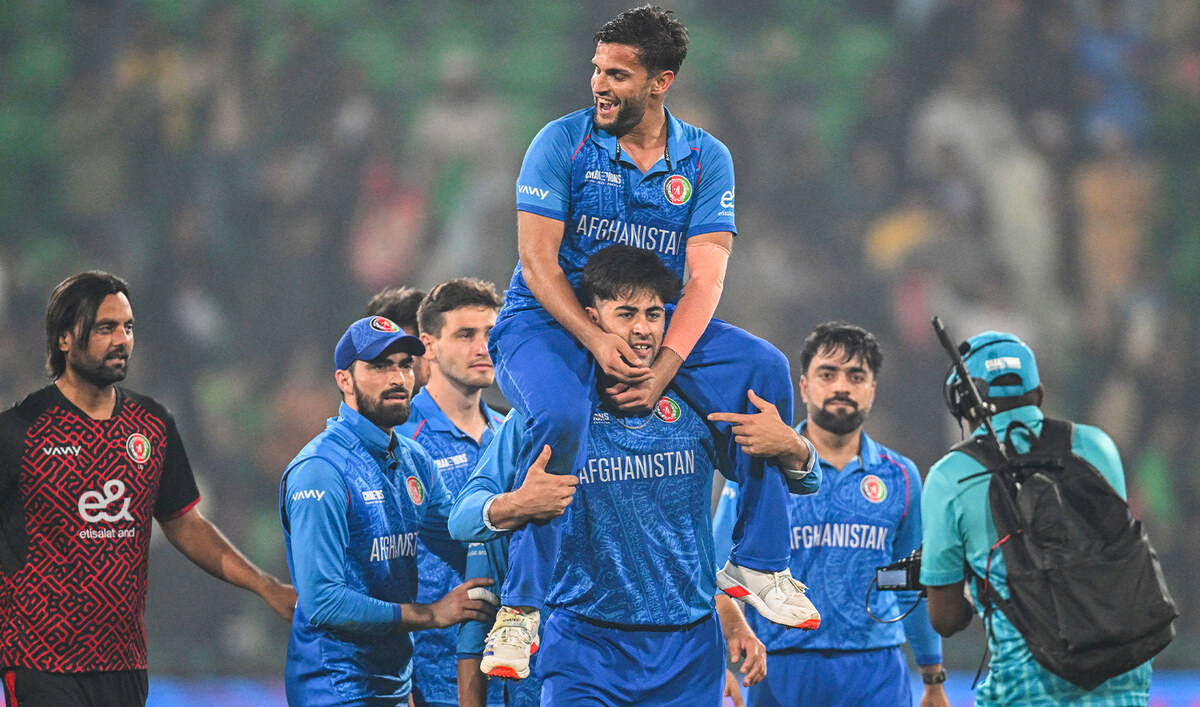LONDON: Climate change impacts, from hotter temperatures to more droughts and floods, threaten much of the world’s cotton production, risking worsening shortages, higher prices and financial woes for growers, researchers warned on Wednesday.
Protecting the $12-billion market — in countries such as India, the United States, Brazil and China — will require both slashing emissions to limit planetary heating and stepped-up efforts by farmers to adapt to the new risks, they said.
By 2040, 40 percent of cotton-producing regions are likely to see their growing seasons shortened by rising heat, while drought could hit half of the global crop, according to a report produced by Cotton 2040, an initiative working for a more sustainable and climate-resilient cotton industry.
Eventually, if efforts to cut emissions fail and warming ramps up in line with the harshest scientific projections, cotton could be dramatically reduced as a crop, leaving the industry “a shadow of what it is today,” said Sally Uren, chief executive of Forum for the Future, an international nonprofit that backs Cotton 2040.
But even with less warming, crop losses are likely to occur even as global cotton demand rises due to population increases and an expanding middle class in some developing nations.
While growers are rapidly becoming aware of rising climate risks, few companies that rely on cotton for their products know much about those threats, and consumers even less, Uren said.
The new analysis should serve as “a wake-up call for the cotton industry,” she added.
Extreme weather has already led to growing volatility in cotton prices. Large-scale floods in Pakistan in 2010, for example, caused global cotton prices to spike to nearly $2.50 from about $0.70 in 2009, the report noted.
Crop losses are proving particularly tough for millions of developing-world cotton farmers who make up about 90 percent of the world’s growers, the report said.
Crop failures could slash incomes among poorer growers who cannot afford to adapt to changing conditions or switch to climate-smarter crops, Uren told the Thomson Reuters Foundation.
In India, where farmers are already struggling with severe droughts and water shortages, some cotton growers left with no money to restart production after their crops fail are committing suicide, she said.
Cotton-growing areas facing some of the biggest extreme weather risks include northern Sudan, Senegal and southern Mali in Africa, as well as parts of Iraq, Iran, Afghanistan and Pakistan, the report noted.
Efforts to adapt to changing conditions by shifting planting times, boosting irrigation and providing farmers with climate forecasts could help some cope better, the report noted.
But unless emissions are slashed, some cotton-growing areas will become unsuitable for the crop in the future, Uren predicted.
In those areas, governments should ensure a “just transition” for farmers, such as by helping them adopt new crops or providing social safety nets, she said.
Cotton-growing areas including Pakistan face world’s biggest extreme weather risks
https://arab.news/29man
Cotton-growing areas including Pakistan face world’s biggest extreme weather risks

- Large-scale floods in Pakistan in 2010 caused global cotton prices to spike
- Crop losses are proving tough for millions of cotton farmers who make up about 90 percent of the world’s growers
Pakistan says main suspect in 2024 Greek boat tragedy arrested

- Four Pakistanis were killed when a migrant boat sank near Greek island of Crete in December 2024
- Federal Investigation Agency says arrested suspect is part of international gang of human traffickers
ISLAMABAD: Pakistan’s Federal Investigation Agency (FIA) announced on Monday that it has arrested the main suspect in the 2024 Greek boat tragedy, vowing to continue its crackdown against human traffickers who send people to Europe and other countries on illegal sea journeys.
The incident took place in December 2024 when four Pakistanis died after a migrant boat they were on sank near the Greek island of Crete. Each year, thousands of Pakistanis pay large sums for risky and illegal journeys to developed countries, hoping to find work and send money back to their families.
The FIA said its team arrested the main suspect, Usman Jaja, from the eastern city of Sialkot. The agency said he had gone into hiding since the Greek boat tragedy took place in December last year.
“Suspect Usman Jaja tried to send several citizens to Europe via boat,” the FIA said in a statement. “The boat met with an accident in which several youths died.”
The FIA said Jaja was wanted by the FIA’s Gujranwala chapter in more than eight cases, alleging that he was part of an international gang of human traffickers. The agency said it has started an investigation against the suspect, adding that raids are being conducted to arrest others involved with him as well.
“Our crackdown against elements involved in boat accidents is underway,” FIA Gujranwala Director Abdul Qadir Qamar was quoted as saying by the agency. “All resources are being used to arrest the suspects.”
He said the agency’s intelligence-based operations against human traffickers are underway, vowing that no one would be allowed to play with the lives of innocent people.
In 2023, hundreds of migrants, including 262 Pakistanis, drowned when an overcrowded vessel capsized and sank in international waters off the southwestern Greek coastal town of Pylos. It was one of the deadliest boat disasters ever recorded in the Mediterranean Sea.
Greece was a favored gateway to the European Union for migrants and refugees from the Middle East, Africa and Asia in 2015-2016, when nearly 1 million people landed on its islands, mostly via inflatable dinghies.
Incidents with migrant boats and shipwrecks off Crete and its tiny neighbor Gavdos, which are relatively isolated in the central Mediterranean, have increased since 2023.
UAE consul general holds iftar dinner for Pakistan’s Special Olympics athletes

- Pakistani athletes are second to none, says UAE Consul General Bakheet Ateeq Al Remeithi
- UAE consul general stresses on the importance of giving confidence to persons with disabilities
KARACHI: UAE Consul General Bakheet Ateeq Al Remeithi held an iftar dinner in honor of Pakistan’s Special Olympics athletes on Sunday, the UAE consulate in Karachi said, stressing the need to empower them through confidence.
The development takes place as Pakistani athletes prepare to take part in the World Winter Games Turin 2025 that are being organized by the Special Olympics organization. The global event is scheduled to run from Mar. 8-15 and will feature at least 1,500 athletes from over 100 countries who will compete in eight sporting competitions throughout Italy’s Piedmont region.
The UAE consul general welcomed the athletes at his residence in Karachi on Sunday evening. He said that athletes from Pakistan are second to none in the Special Olympics.
“A little hard work on athletes boosts their morale,” Al Remeithi was quoted as saying by the UAE consulate. “The consul general said that despite mental or physical problems, special athletes are no less capable than anyone else. They need to be given confidence.”
The UAE consul general said that Arab culture during the holy month of Ramadan further strengthens the love and ties between the brotherly countries of Pakistan and the UAE.
The participants thanked the UAE consul general for hosting the iftar and thanked him for extending his hospitality, the UAE’s consulate general said.
Pakistan president to address joint session of parliament today

- Asif Ali Zardari, who has previously served as president, will be addressing parliament for eighth time today
- Pakistani presidents’ addresses to parliament are usually marred by noisy protests from opposition lawmakers
ISLAMABAD: President Asif Ali Zardari will address the joint session of Pakistan’s parliament today, Monday, at the start of the new parliamentary year, state broadcaster Radio Pakistan reported.
According to Article 56 of Pakistan’s constitution, the president is required to address both houses of parliament at the start of the first session of each parliamentary year. Zardari, who previously served as Pakistan’s president from 2018-2013, has addressed joint sessions of the parliament seven times before, including one last year in April.
Pakistani presidents’ addresses to parliament have been marred by noisy protests from opposition lawmakers in the past. Former prime minister Imran Khan’s Pakistan Tehreek-e-Insaf (PTI) party lawmakers shouted slogans and banged their desks when Zardari spoke in 2024. This year as well the party is expected to disrupt Zardari’s speech with sloganeering as the PTI’s tensions with the ruling coalition government persist.
“President Asif Ali Zardari will address the joint session of Parliament on Monday on the beginning of new parliamentary year,” Radio Pakistan said in a report. “The joint session will start at three in the afternoon.”
The state-run media said stringent security arrangements have been put in place at the Parliament House ahead of the session. It said that as per the National Assembly Secretariat, entry for guests has been prohibited while media representatives will be allowed in “limited numbers.”
According to English language newspaper Dawn, Zardari will outline the federal government’s performance and governance issues in his address.
The president’s address takes place as Pakistan navigates a tricky path to economic recovery after a prolonged macroeconomic crisis. Pakistan’s government says its economic reforms over the past one year have yielded fruit, pointing to improving macroeconomic indicators such as a decline in inflation, current account surplus and increase in exports.
The country, however, faces surging militancy in its western provinces bordering Afghanistan. Balochistan and Khyber Pakhtunkhwa (KP) have reported an increase in attacks launched by religiously motivated militants and separatist outfits since November 2022, dealing a blow to Pakistan’s efforts to root out militancy.
The Shehbaz Sharif-led coalition government is also grappling with political instability as its tensions with Khan’s PTI persist. The former prime minister continues to remain popular from behind bars, with his party leading a large protest calling for his release from prison last year that involved clashes with law enforcers.
Both sides attempted to break the political deadlock in the country by holding negotiations in December 2024. However, after three rounds of talks, the negotiations failed as the PTI pulled out in January, citing the government’s failure to form judicial commissions to investigate protests it led in May 2023 and November 2024.
Unidentified gunmen kill three Sindh-based barbers in southwestern Pakistan

- Armed men shot dead barbers while they were sitting outside a hotel in Balochistan’s Panjgur district, says paramilitary Levies soldier
- No group has claimed responsibility for attack but Baloch separatist militants have killed Punjab-based barbers and commuters before
QUETTA: Unidentified gunmen in southwestern Pakistan shot dead three barbers who hailed from Sindh on Sunday, a soldier of the paramilitary Levies force confirmed, amid a surge in ethnic attacks in the restive Balochistan province.
Attacks by ethnic Baloch separatist militants against Punjab-based laborers, barbers and commuters are common in the southwestern province. Balochistan, Pakistan’s largest province by landmass and rich in mineral resources, has long faced a low-level insurgency led by separatist groups like the Baloch Liberation Army (BLA), who accuse Islamabad of exploiting the province’s natural resources for the development of Punjab while neglecting the local population. Pakistan’s government denies these allegations, saying it has prioritized Balochistan’s development through investments in health, education, and infrastructure projects.
The latest attack took place in Gwargo, an area located around five kilometers away from Balochistan’s Panjgur district, Levies soldier Shakeel Baloch said. He added that unidentified armed men shot the barbers while they were sitting outside a hotel on Sunday evening.
“Three barbers who belonged to Mirpurkhas and Jacobabad districts of Sindh province were killed on the spot,” Baloch told Arab News.
No group immediately claimed responsibility for the attack but suspicion is likely to fall on the BLA, which has carried out attacks against Punjabi laborers and barbers in the past.
Balochistan government spokesperson Shahid Rind strongly condemned the attack, describing the development as a “barbaric” move by the militants.
“Terrorists have been attempting to create divisions and hate among provinces by targeting laborers who are working in Balochistan,” Rind said.
He said security forces had started tracking the “terrorists” involved in the attack.
Balochistan has seen a surge in ethnic attacks over the past few months as the province’s security situation deteriorates. Seven Punjab-based passengers were forcibly removed from a bus heading to the eastern city of Faisalabad from Quetta and killed by a group of gunmen in Balochistan last month.
In August 2024, nearly two dozen passengers traveling in Punjab-bound buses were killed after BLA militants forcibly removed ethnic Punjabi commuters from buses after checking their identity cards.
In May 2024, gunmen shot dead seven Punjab-based barbers who lived and worked together near the port city of Gwadar in Balochistan.
Pakistan fails, Kohli roars and Smith retires: Champions Trophy highlights

- Virat Kohli silenced critics over poor form in Test cricket by scoring century against arch-rivals Pakistan
- Veteran batter Steve Smith called time on his ODI career a day after Australia lost semifinal to India
DUBAI: India beat New Zealand by four wickets in the final of the Champions Trophy on Sunday in Dubai.
AFP Sport looks at five storylines from the 50-over tournament.
Virat Kohli silenced the critics over his poor form in Test cricket with an unbeaten 100 against arch-rivals Pakistan.
Kohli took time to get into the groove on a sluggish Dubai pitch to anchor India’s chase of 242 with key stands.
His mastery of the conditions, combined with his ability to rotate the strike, took India to victory with six wickets and 45 balls to spare.
Kohli was also India’s savior in the semifinal against Australia when his 84 steered another successful chase.
Opposition skipper Steve Smith called the 36-year-old “arguably the best chaser the game has seen.”

Pakistan hosted a major cricket event for the first time in three decades and excitement there was sky-high, despite India’s refusal to tour and instead play all their matches in Dubai.
But the Pakistan team’s poor showing on the field deflated the spirits of the cricket-crazy nation with successive losses to New Zealand and India.
That signalled the end of Pakistan’s title defense, and to add insult to injury, their dead-rubber final group match against Bangladesh was washed out.

One disappointed fan called the tournament a “wedding where you don’t know the bride or groom.”
New Zealand’s Glenn Phillips lit up the tournament with his fielding heroics, notably against India in the group phase for the key wicket of Kohli.
Phillips dived full stretch to his right at backward point and somehow held on to the ball to send Kohli back for 11 off fast bowler Matt Henry.
Kohli stood in disbelief for a few seconds before trudging back to the pavilion as the fans in Dubai fell silent.

Social media was abuzz with reactions to the catch, with one fan on X calling Phillips “the Superman of the tournament.”
Jos Buttler’s England came into the competition off the back of a 3-0 ODI whitewash in India, but piled on a mammoth 351 in their opener against Ashes rivals Australia.
England still managed to lose as Australia chased down the target to leave Buttler’s side on the brink.
Defeat to Afghanistan put England out of the tournament after just two matches.

Two days later Buttler quit as England’s white-ball captain after three successive flops in ICC events, including their failed T20 and 50-over World Cup title defenses.

Veteran batsman Steve Smith, 35, called time on his ODI career a day after Australia lost in the semifinals to India.
Smith top-scored for Australia with 73, but his knock was in vain after India overhauled Australia’s 264 and the captain’s innings turned out to be his last in the format.
Another retirement seemed highly likely after the final with intense speculation that India skipper Rohit Sharma would end his one-day career if they won.

Opener Rohit top-scored with 76 in the final and declared afterwards that he was not going anywhere, leaving Indian media stumped and fans relieved.
















